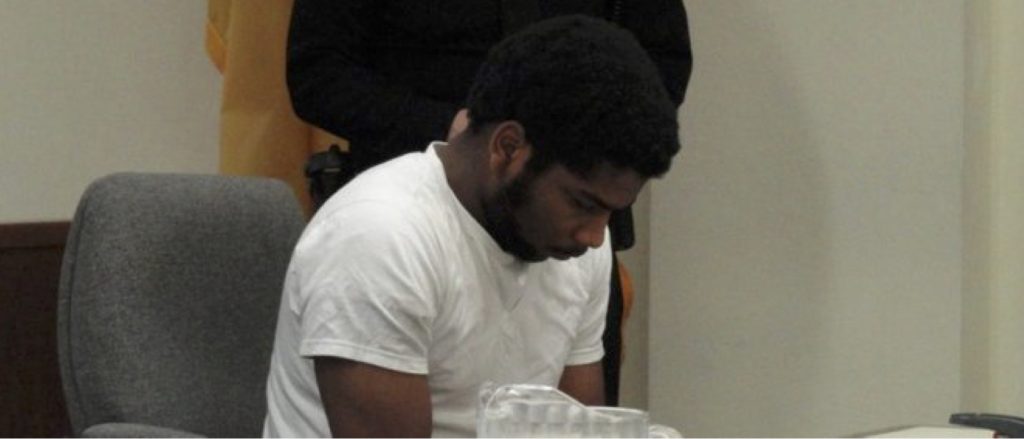
As a young child, I suffered physical abuse in my home and began to act out. I eventually entered the child welfare system where I was sent to more than 20 different placements—including some of the worst foster homes and programs in New Jersey.
In the system, I was assured I would be protected and receive help for the trauma I had suffered. But the help never came, and the trauma and abuse began again. The people who promised that I would be protected ignored my cries for help when one of my foster fathers sexually abused me.
I reported the abuse but was told that it’s hard to place African American children in the system. They told that I should look at the good school, nice home, and food I had and realize that things could be worse. After years of being traumatized in the system, I revisited my abusive former foster parent, confronted him about the abuse, and killed him. I was 16 years old.
“The people who promised that I would be protected ignored my cries for help…”
Once arrested, I was misled into a plea to 30 years (almost double my life at that point) with an 85% mandatory minimum in an adult prison in New Jersey. Prosecutors and law enforcement took advantage of the fact that I had no parental support or legal advisors to guide me through the justice system. I was told: “Your kind usually get life sentences or never make it out of prison.” They viewed me as just another black teenager who had murdered someone and did not deserve a chance at rehabilitation.
I don’t make excuses for myself. I realize the harm that I did to my foster father and his family. I recognize that I need to be held accountable. But I also wish that someone had been there for me during my childhood to provide the help and treatment I needed. I hope the justice system will, someday, recognize that I’m capable of being rehabilitated. After an unsuccessful attempt to withdraw my plea, I was sentenced as an adult to serve at least 25 years, 6 months, and 2 days.
“Once again, I was cast out amongst the forgotten children–a teenager thrown into the adult correctional system.”
As crazy as it sounds, I was honestly under the impression that years behind bars would change me, that the time spent in prison would transform me into a better person. I felt like I had caused so many hardships for my family and myself. If prison could help me change, I wanted to be reformed. But the reality shocked me. When I entered the system, it became clear: “You’re an inmate. You wear prison colors. You’re pathetic. And you’ll be treated like cattle.”
While I have faced some very difficult times in my life, nothing compares to living in an adult correctional facility as a juvenile. I realized that prison could potentially transform me into a worse person than I was when I entered. These prisons are not focused on correcting individuals but on warehousing inmates, and they don’t care if youth leave troubled and corrupt.
I thank God that I’ve decided to change my ways and not become a statistic. I have fought long and hard to correct my behavior and also not to succumb to the negative life style that is ever-present in prison. Instead, I spend my time reading and writing. I’m educating myself on criminal law, business management, and social economics. In the process, I have learned that there are thousands of youth incarcerated as adults each year in our country–most of them coming from communities where poverty and crime are prevalent. Very little is being done to fix these communities, and the youth are paying the price. Our society can’t keep treating the correctional system as a warehouse for youth living with mentally illness.
I spend my days advocating for other kids who cannot do so for themselves because they are illiterate or have other problems. I have discovered the injustice and prejudice shown not only towards African American juveniles but all African Americans. Youth of color are not only treated differently than their white counterparts but are also given harsher sentences even when their crimes are the same.
Through my writing, I hope to clarify and reveal the effects of placing and warehousing juveniles in adult prisons with very few rehabilitation opportunities and very few programs. I have made a promise to myself, and that promise is that I will advocate every day of my life until I see real change … And even when I see real change, I will still continue to advocate. My hope is that through public awareness, policy and prison reform, I and thousands of others will find long-awaited relief.
“Our children are our greatest treasure. They are our future. Those who abuse them tear at the fabric of our society…”
NELSON MANDELA
Sending juveniles to adult facilities and giving them excessively harsh sentences without any chance of rehabilitation is abuse.
Youth should never be incarcerated in the adult system.
